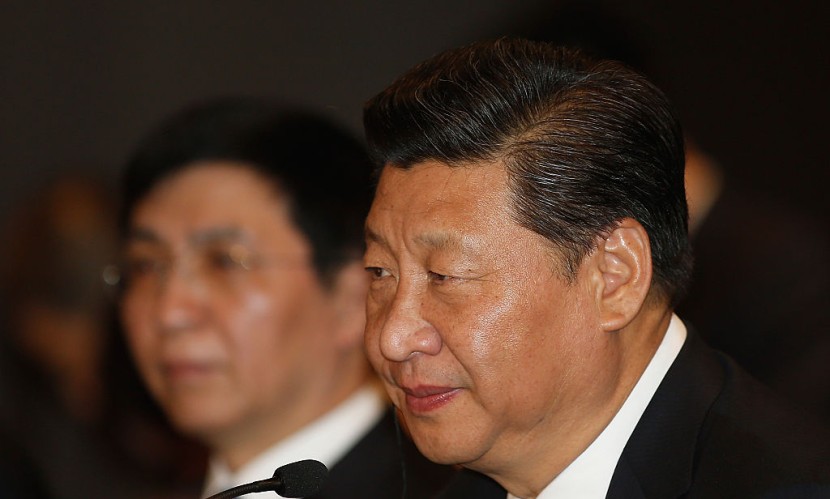
As Defense Minister Peter Dutton took the next step in formalizing the arrangement, Chinese President Xi Jinping took a swipe at Australia's desire to buy nuclear submarines.
In Question Time on Tuesday, Dutton called the AUKUS security alliance between Australia, the United States, and the United Kingdom "the most significant since World War II."
Xi Jinping lashes out at AUKUS nuclear submarine deal
Dutton signed a formal deal with the US and the UK on Monday, allowing the nations to exchange information about nuclear-powered vessels. In a ceremony attended by US Chargé d'Affaires Michael Goldman and UK High Commissioner Victoria Treadell, the agreement was signed.
However, in an address to the Association of Southeast Asian Nations (ASEAN) on Monday, Chinese President Xi Jinping took aim at Australia's nuclear submarine plans, emphasizing the importance of the area being free of nuclear weapons.
Xi's remark was taken as a jab at Australia's ambition to buy nuclear submarines under the AUKUS treaty. In support of Xi's address, China's foreign ministry went even farther, stating the AUKUS pact "escalates regional tensions," as per Daily Mail.
The submarine agreement, which was initially disclosed in September, sparked outrage in France as Australia chose to cancel a $90 billion contract with the European giant in favor of the AUKUS pact.
While the two leaders were at the G20 conference recently, French President Macron openly accused Australian Prime Minister Scott Morrison of lying about the circumstances surrounding the cancellation. Despite some disagreement with the new tariff, Morrison claims the deal was done in the national interest.
Despite his involvement in directing China's economic and military build-up over the previous nine years, Xi declared his objective was to create a "peaceful home together." Per Sky News, before striking Australia's new nuclear-submarine deal, he also claimed China will never "bully smaller countries."
During a news briefing on Monday, Foreign Ministry spokesman Zhao Lijian criticized Australia for continuing to "grossly interfere" in Taiwan-related problems. After months of China-led accusations that Australia's quest for nuclear submarines constituted a possible push for nuclear weapons, President Xi backed down in his diplomat's statements on Monday.
Related Article : Russia Ramps Up War Rhetoric Against Ukraine in January With 100,000 Military Troops
Beijing supports nuclear weapon free-zone in Southeast Asia
China is one of nine countries in the world with nuclear weapons, and it is said to be aggressively expanding its arsenal. In October, the Pentagon released a study revealing that China was rapidly increasing its military and nuclear capabilities, far faster than analysts had predicted a year ago.
Beijing will equal or overtake the United States as a worldwide power by the middle of the century, according to the paper, which is significantly sooner than past predictions. Meanwhile, the US-China Economic and Security Review Commission cautioned that China's nuclear weapons development increased the likelihood of a conflict over Taiwan.
In a 550-page report, the Congressional panel recommended the US to boost "military deterrence" measures to prevent an "unintentional nuclear escalation," as well as Canberra's response to China's coercive trade methods and the ability of Australian companies to pivot and find new markets.
It comes after China allegedly conducted a mid-year test of a hypersonic weapon capable of orbiting the earth before entering the atmosphere and striking its target. China has denied any missile tests, claiming it was testing a reusable space vehicle, but the Guardian claims the weapon system's design was meant to evade US missile defenses.
According to observers, China has expressed support for a nuclear-weapon-free zone in Southeast Asia as it strives to deepen regional alliances, prompted by worries over the new Aukus security treaty.
While Beijing has yet to sign the protocol to the ASEAN Treaty to keep nuclear weapons out of the region, despite expressing a willingness to do so for more than two decades, they believe that pressure from the new partnership between Australia, the United Kingdom, and the United States will hasten the process.
On Monday, President Xi Jinping told leaders of the Association of Southeast Asian Nations that China supported efforts to establish a nuclear-weapon-free zone and was prepared to sign the treaty's protocol "as soon as possible," as per SCMP via MSN.
@YouTube
© 2026 HNGN, All rights reserved. Do not reproduce without permission.








